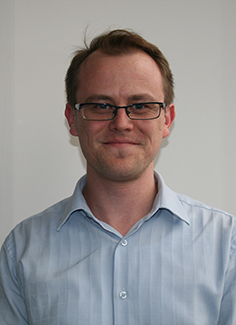Lifestyle
Copyright@ Australian Catholic University 1998-2026 | ABN 15 050 192 660 CRICOS registered provider: 00004G | PRV12008
Copyright@ Australian Catholic University 1998-2026 | ABN 15 050 192 660 CRICOS registered provider: 00004G | PRV12008

After the panic buying came the theorising: why did so many of us respond to the pandemic by rushing out to the shops to snag a pack of toilet paper? Why do we hoard in times of crisis?
Amid all the earnest and worthwhile attempts to explain this frenzied behaviour came a succinct pearl of wisdom from a customer: Why are they panic buying? “Because everyone else is.”
Human beings are “highly imitative, social beings”, says theologian Joel Hodge, and we often imitate each other in intense and irrational ways.
“We are constantly judging, evaluating and trying to perceive what other people desire, and this can influence us deeply,” says Dr Hodge, a senior lecturer at ACU’s National School of Theology.
“We can still choose to act freely and rationally, but when we see everyone else buying things in such huge quantities, our desire is elicited in an intense way and that can make us feel like we also need to do it, so we don’t get left behind.”
Dr Hodge draws on the work of the late Catholic philosopher René Girard, whose concept of mimetic desire explains the role that imitation plays in our lives.
“[The human] is the creature who does not know what to desire, and he [or she] turns to others in order to make up his mind,” Girard wrote. “We desire what others desire because we imitate their desires.”
Although Girard died in 2015, his theory of mimetic desire seems increasingly pertinent.
“The explosion of social media, the resurgence of populism, and the increasing virulence of reciprocal violence all suggest that the contemporary world is becoming more and more recognisably ‘Girardian’ in its behaviour,” wrote Robert Pogue Harrison in The New York Review of Books.
When large numbers of people feverishly hoarded essential items in response to the coronavirus pandemic, Girard scholars quickly recognised it as a mimetic phenomenon.
“It was immediately clear that most people were only doing it because other people were doing it,” says Dr Hodge, who has co-edited a number of books on Girard’s theory, including Violence, Desire, and the Sacred: Girard’s Mimetic Theory Across the Disciplines, and the recently released Violence in the Name of God, which draws on Girardian philosophy to understand militant jihadism.
“In periods of crisis – and Girard talked about this – we become more attuned to the way in which other people’s desires are manifesting, and we tend to act in more frenzied mimetic ways.”
The fact that we often desire the same thing means conflict can commonly arise, especially when the object of one’s desire becomes scarce.
This can result in a dangerous and perverse feedback loop. As Girard wrote: “In imitating my rival’s desire I give him [or her] the impression that he has good reasons to desire what he desires, to possess what he possesses, and so the intensity of his desire keeps increasing.”
“It escalates more and more, to the point where you forget about the object itself and it’s just about winning,” Dr Hodge explains.
“I need to win in order to feel good about myself, in order to gain a sense of control or identity, and that’s often at the heart of the whole thing to begin with.
“The façade falls away as people start fighting over the object more and more intensely, forgetting the object in the process and dehumanising others while becoming violent.”
The vision of people tussling in the aisles over packs of toilet paper, or attacking each other with broken wine bottles, were clear examples of this.
Meanwhile, the scapegoating that became prevalent – including racist abuse against Chinese-Australians – was also mimetic in nature, as people looked for someone to blame.
These behaviours occur during crises because we’re instinctively seeking ways to defuse the problem.
“During these social contagions, our desire intensely fires from multiple points of stimulation, such that it is difficult to resist,” Dr Hodge wrote in Eureka Street. “However, this can shift once social pressure becomes overwhelmingly in favour of restrictions.”

In Australia, we saw people’s desires pivot towards safety and survival, prompting more positive forms of imitation.
“They soon displayed a willingness to share their objects of desire, rather than fight over them.”
Just as imitation can divide us and prompt us to fight, it can also connect us and helps us to learn.
Toddlers and infants learn to walk or ride a bike by imitating their parents or their peers. We learn social norms by observing and mimicking the behaviour of those around us, and this continues well beyond childhood.
“A lot of what we do with children at a young age is about stimulating their desire to learn, and that’s an imitative process,” Dr Hodge says.
We desire what our role models desire, and for that reason, positive role models – people who inspire and teach us good ways of developing and upskilling – are extremely important.
“The fact that our parents or our guardians loved us, that stimulates our own desire and gives us the capacity to do the same thing, to love and to bond with others,” he adds.
“It’s a process of having your desires stimulated by the desires of others who really value a certain activity, whatever it might be – doing maths, learning to fix a car, playing sport or a musical instrument – these are really powerful examples of imitation in the life of a child …
“This process enables them choose to do something that gives them a deeper, more meaningful sense of authenticity to their lives, and a sense of who they are.”
As much as we like to think of our desires as autonomous, our behaviour tends to support Girard’s insistence that “imitation is inevitable”.
The solution, it appears, is not to stop imitating; rather, it is to choose wisely exactly whom we imitate – especially during times of crisis.
“It’s been fascinating to observe this medical and physical contagion gravitating into a social contagion, with people imitating behaviours like panic-buying and the constant game of blaming,” Dr Hodge says.
“Alongside that, we’ve seen many people coming together in acts of caring and kindness, and these are major public breakthroughs … People like doctors, nurses and paramedics putting themselves at risk to help COVID-19 patients, rather than running away, are particularly amazing examples, and are reminiscent of Christians in earlier plagues who were known to help the sick while others escaped …
“These acts show us that we can find fulfilment in our solidarity with others, which calls on us to sacrifice for the good of others, over and above the satisfaction of our immediate desires.”
Dr Joel Hodge is a Senior Lecturer at ACU’s National School in Theology. His main academic interest is in the philosophical insights of the late French-American scholar René Girard.
Fascinated by theology and philosophy? Explore our courses.

Copyright@ Australian Catholic University 1998-2026 | ABN 15 050 192 660 CRICOS registered provider: 00004G | PRV12008